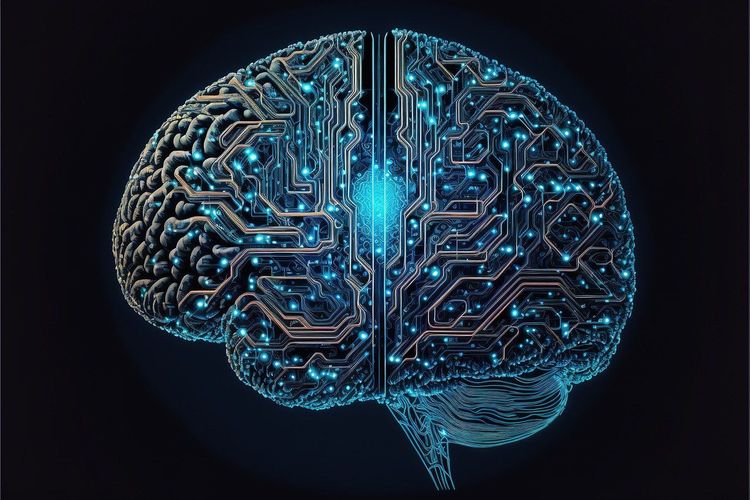A trio of scientists—Demis Hassabis, co-founder and CEO of Google’s AI division DeepMind; John Jumper, Senior Research Scientist at Google DeepMind; and David Baker from the University of Washington—has been awarded the 2024 Nobel Prize in Chemistry for their pioneering work in protein prediction and development.
The recognition centers on AlphaFold 2, an AI system launched in 2020 that accurately predicts the 3D structure of proteins based on their amino acid sequences. Baker, who leads a lab focused on designing novel proteins—including those for pharmaceuticals, vaccines, nanomaterials, and tiny sensors—shared this honor with his colleagues.
The award highlights the transformative impact of artificial intelligence in biological sciences, coinciding closely with the Nobel Prize in Physics awarded to fellow Google DeepMinder Geoffrey Hinton and Princeton’s John J. Hopfield for their contributions to artificial neural networks.
The Royal Swedish Academy of Sciences announced the €11 million (around $1 million USD) prize, with half allocated to Baker and the rest divided between Hassabis and Jumper.
Solving a 50-Year-Old Biological Challenge
The Nobel committee emphasized AlphaFold's significant achievement in addressing protein structure prediction, a challenge that has persisted for five decades. The 3D shape of a protein dictates its function, but accurately predicting how amino acid chains fold into that shape has been exceedingly complex. Despite numerous efforts since the 1970s, accurate predictions remained elusive due to the vast number of possible configurations.
AlphaFold utilizes AI to achieve near-experimental accuracy in predicting protein 3D structures, closely matching results obtained from traditional experimental methods such as X-ray crystallography and nuclear magnetic resonance (NMR) spectroscopy, with an error margin of roughly 1 Ångström (0.1 nanometers). This advancement has proven to be a transformative tool for biologists.
Hassabis and Jumper's contributions at DeepMind have reshaped structural biology and drug discovery, empowering scientists globally. "AlphaFold has already been utilized by over two million researchers in critical areas like enzyme design and drug discovery," Hassabis stated. "I hope we will view AlphaFold as a testament to AI’s potential to speed scientific discovery."
AlphaFold’s Global Accessibility
AlphaFold’s predictions are available via the AlphaFold Protein Structure Database, a groundbreaking open-access tool embraced by researchers in 190 countries. With the capability to predict protein structures in minutes—previously a process taking years—AlphaFold significantly accelerates scientific research.
The system has been instrumental in addressing antibiotic resistance, designing plastic-degrading enzymes, and contributing to vaccine development, showcasing its relevance in both healthcare and sustainability.
Jumper remarked, “We are honored to be recognized for realizing the promise of computational biology to deepen our understanding of proteins and support experimental biologists’ efforts.” He emphasized AlphaFold as a discovery tool aiding scientists in understanding diseases and creating new therapeutics rapidly.
The Genesis of AlphaFold
The inception of AlphaFold stems from DeepMind's broader AI exploration. Hassabis, a chess prodigy, began his career at 17 by co-developing the video game Theme Park. After studying computer science and earning a PhD in cognitive neuroscience, he co-founded DeepMind in 2010. The company, known for its AI prowess, was acquired by Google in 2014 for approximately $500 million.
As Google DeepMind's CEO, Hassabis has overseen breakthroughs in AI, including systems achieving unprecedented success in games like Go. By 2018, the AlphaFold project entered the Critical Assessment of protein Structure Prediction (CASP) competition, winning by outperforming various teams. The real leap forward came in 2020 with AlphaFold 2, which configured challenging protein folding problems with unmatched accuracy.
AlphaFold 2 represents years of research in neural networks and machine learning, establishing DeepMind as a leader in these fields. The model, trained on extensive datasets of known protein structures, can generalize predictions for unencountered proteins, a capability previously unimaginable.
Earlier this year, DeepMind and Isomorphic Labs introduced AlphaFold 3, an upgraded model featuring an enhanced Evoformer module and a diffusion network for refining predicted molecular structures.
David Baker’s Role in Protein Design
While Hassabis and Jumper advanced protein prediction, David Baker's work in de novo protein design focuses on creating new proteins that do not exist in nature. At the University of Washington’s Institute for Protein Design, Baker's lab developed Rosetta, a computational tool for designing synthetic proteins.
Baker’s innovations have led to proteins aimed at producing novel therapeutics, including custom enzymes and virus-like particles for vaccines. His team has even designed proteins capable of detecting fentanyl, addressing a global health crisis.
By creating proteins from scratch, Baker's research extends the potential applications of proteins, complementing AlphaFold's predictive abilities with the design of tailored molecules.
The Future of AI in Scientific Research
The Nobel Prize celebrates the profound contributions of Hassabis, Jumper, and Baker, signaling a broader trend: AI is becoming indispensable in scientific research. AlphaFold's success has ignited renewed interest in its potential to address complex challenges across fields like climate change, agriculture, and materials science.
The Nobel Committee highlighted the vast opportunities these discoveries create for biology and chemistry. While Hassabis champions AI's transformative capacity, he recognizes the importance of responsible use: "AI can hasten scientific discovery like never before, but we must approach it with caution."
As AI systems like AlphaFold evolve, their capability to model biological processes and predict outcomes could revolutionize healthcare, sustainability, and more. The awarding of the Nobel Prize to Jumper and Hassabis marks both an acknowledgment of their immense impact and the dawn of a new scientific era where AI plays a crucial role in uncovering life's mysteries.
In conclusion, the 2024 Nobel Prize in Chemistry recognizes the groundbreaking contributions of Hassabis, Jumper, and Baker in reshaping protein science. AlphaFold stands as a pivotal tool for researchers, dramatically accelerating discovery and expanding the horizons of biological innovation. Together, these advancements signal the beginning of a transformative era for artificial intelligence in science, with immense possibilities still unfolding.







